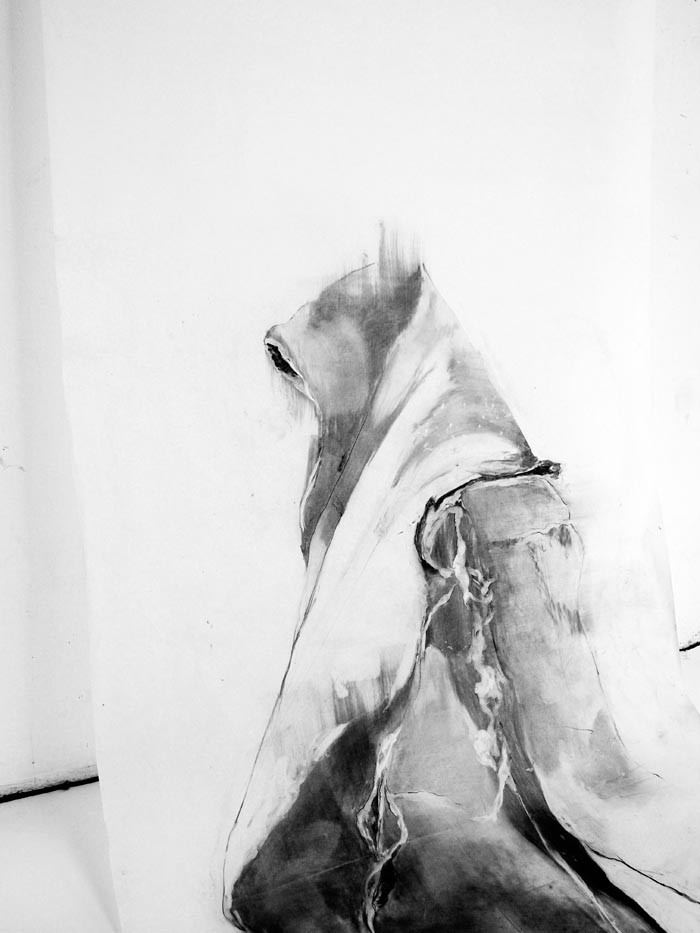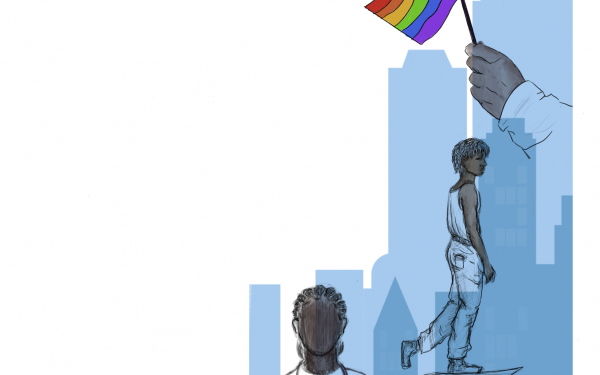Something You’re Not
Performing Femininity in the Workplace
I am no longer read as a woman. I have a deep enough voice and enough body hair that it is never in question any longer. I look dudely, and nobody questions my gender. I absolutely cannot go into women’s bathrooms or locker rooms anymore. As a female-to-male transexual, this is quite the relief.
Yet, while I head into the smelly men’s bathrooms to pee, my identification cards say ‘F.’ Worse—it will cost me hundreds of dollars and hours on operating tables before I can get my sex designation changed to male.
This summer, I took the decision to not come out as trans at the summer camp where I worked. I didn’t necessarily present myself as female, but nor did I exactly present as male. I didn’t think I would be safe if I was out. So I didn’t use my name—I used a gender-neutral, different version of my birth name. Basically, everyone thought that I was a lesbian, which was… flattering.
One of my worst campers, in a fury, called me a “dyke” at one point. I wanted to laugh because she got my identity wrong.
This is not to negate the pain that others can feel when that word is used to hurt, but for someone who has never identified as a lesbian in his life, I was happy to cradle that word in my arms and keep it safe from doing any real harm.
Frequently, I heard from my straight cisgender co-workers that they didn’t know how we, the queerer people, handled the questions and insults.
Mostly, it’s because we had to. Pretending to be a woman-ish queer-thing, coping with homesick loneliness, and surviving the wrong name and pronouns kept me busy enough.
Passing is a peculiar thing. You can feel the outline of the mask on your face and feel through your façade—gender as performance, as it were. I overheard campers arguing about my pronouns or gender presentation sometimes.
I had hairy legs and short hair but a high voice and was okay with nail polish. A distinctly non-heteronormative person. I even had a kid who refused to trust me until I gave her a definite answer on my gender. It killed something inside me every time I had to answer, “I’m a girl.”
If you’ve been reading my column, you know that I have never identified as female. It felt like I was blatantly lying to my campers, but I feared for my physical safety. Plus, why would I want to work in an extremely isolated, potentially hostile environment as an open transexual?
By the end of the summer, maybe because the camp was so small, all of the staff knew that I was trans. Someone even asked me if it hurt to get all the wrong pronouns and name all the time. She said that if she identified as male and got female pronouns all the time, she would find it incredibly rude.
She’s right, but I underwent that ordeal willingly. I wasn’t confident enough in myself to come out as trans to every single camper. I’m still not. I shouldn’t have to be.
I spent the summer purposely trying to look dyke-y. I wore cut-offs, band tees, and plaid. I had a jean vest that I sewed patches on—I pretended it was armor to keep me safe. I was convinced that it made me look butch but my friend told me afterward that it was at least a size too big.
So I bound my chest, as always, and threw a t-shirt on whenever I had to swim. I wore swim trunks and hoped desperately that, if on my period, I wouldn’t bleed.
That didn’t happen, thank goodness. I’m four-and-a-half months on testosterone now and my period has finally stopped. The only people who perceive me as female now are my birth family—I’m still trying to challenge that.
I encounter kids from camp on the metro sometimes and it’s awkward—I can never decide if I should tell them that I am not a girl. Do they need to know who I really am? Or should I just leave who I was in their memory—the butchy queer camp counselor with the hairy legs who wrote poetry and juggled?
Two weeks ago, I bumped into a camper at the psychologist’s office. He called me my camp nickname and I said to him, “Remember all of those rumors at camp that I was a transexual? Well, they’re true.”


_600_832_s.png)


_1__600_375_90_s_c1.jpg)
_1_600_375_90_s_c1.jpeg)
